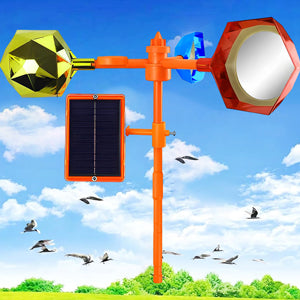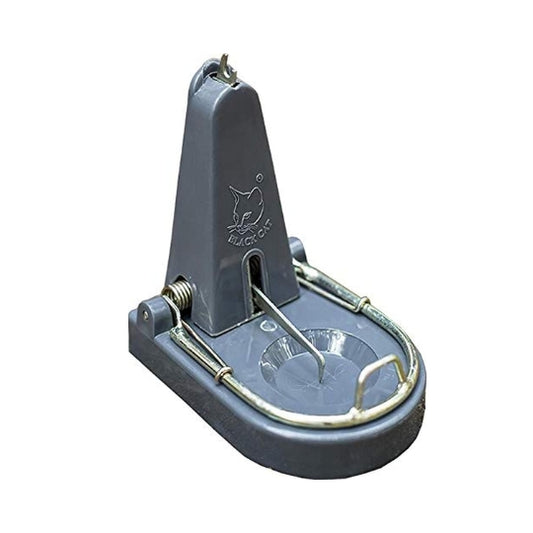Harnessing the Sun: The Power of Solar Electrical Fencing for India's Farmers
Share
In the heart of rural India, where the sun shines brightly for most of the year, a revolutionary technology is transforming the way farmers protect their crops and livestock. It's called the solar electrical fencing system, and it's not just a fence; it's a shield powered by the sun, defending against hungry pests and safeguarding valuable assets. In this article, we'll explore what a solar electrical fencing system is, who should use it, where and when it's most effective, the top brands to consider, its advantages, limitations, and how it can benefit common Indian farmers.
What is a Solar Electrical Fencing System?
A solar electrical fencing system is a cutting-edge solution that employs solar energy to power an electric charger. This charger emits high-voltage pulses along the fence wire, effectively deterring animals from coming into contact with it. The result? A safe and eco-friendly way to protect your crops, livestock, and property.
Who Should Use a Solar Electrical Fencing System?
Solar electric fencing systems are a game-changer for anyone in need of animal control or property protection. They are especially valuable in remote areas where traditional electricity is scarce. Farmers and landowners who prioritize sustainability will find these systems particularly appealing.
Where Should a Solar Electrical Fencing System be Used?
The versatility of solar electric fencing systems makes them suitable for a wide range of applications:
- Farms and Ranches: Protect your crops and livestock from wandering animals and predators.
- Orchards and Vineyards: Safeguard your fruit-bearing trees and grapevines from foraging wildlife.
- Gardens: Keep pesky pests at bay and your bountiful harvest intact.
- Residential Properties: Secure your home and garden from unwanted intruders.
- Commercial and Industrial Properties: Enhance security and protect valuable assets.
When Should a Solar Electrical Fencing System be Used?
These systems can be employed year-round, with peak effectiveness during the growing season when crops are most vulnerable. Additionally, they provide vital protection for livestock against predators during the harsh winter months.
Which Solar Electrical Fencing System is Best?
Choosing the right system depends on various factors, including the size of the area you need to fence, the types of animals you want to deter, and your budget. Some reputable solar electric fencing system brands to consider include Zareba, Gallagher, Ritchie, Patriot, and Premier.
Advantages of a Solar Electrical Fencing System
- Safety: Solar electric fencing systems are safe for both animals and humans, delivering high-voltage, low-amperage pulses that don't cause serious harm.
- Effectiveness: They excel at deterring animals, who quickly learn to avoid the electrified fence.
- Environmentally Friendly: Powered by solar energy, these systems align with eco-conscious practices.
- Low Maintenance: They require minimal upkeep, with periodic cleaning of the solar panel and battery checks being the main tasks.
Limitations of a Solar Electrical Fencing System
- Cost: Initial installation costs can be higher than traditional electric fences, although long-term savings on electricity bills offset this.
- Sunlight Dependency: These systems rely on sunlight to charge the battery, which can be problematic in regions with extended winters or frequent cloudy weather.
Common Problems in a Solar Electrical Fencing System
- Solar Panel Damage: Hail, wind, or severe weather can damage the solar panel, reducing its ability to generate electricity.
- Battery Failure: Over time, the battery can fail, rendering the energizer ineffective.
- Fence Wire Damage: Animals, vehicles, or other objects may damage the fence wire, disrupting its ability to conduct electric pulses.
Benefits of a Solar Electrical Fencing System
- Deterrence: Protect your crops, livestock, and property from a range of animals, including deer, coyotes, bears, and wolves.
- Enhanced Security: Use it to bolster security measures, discouraging intruders from entering your property.
- Cost Savings: Bid farewell to electricity bills as you embrace renewable energy.
- Eco-Friendly: For those who prioritize environmentally conscious solutions, solar electric fencing is a sustainable choice.
In conclusion, the solar electrical fencing system is a safe, effective, and eco-friendly ally for common Indian farmers. It offers a low-maintenance, long-term solution to the age-old problem of safeguarding crops and livestock, making it a shining example of how harnessing the power of the sun can revolutionize farming practices across India.
The components of a solar electrical fencing system are:
- Solar panel: The solar panel converts sunlight into electrical energy, which is used to charge the battery.
- Battery: The battery stores the electrical energy generated by the solar panel and supplies it to the energizer.
- Charge controller: The charge controller regulates the flow of electricity from the solar panel to the battery, preventing overcharging.
- Energizer: The energizer converts the 12V DC power from the battery into high-voltage pulses that are sent to the fence wire.
- Fence wire: The fence wire is the conductor that carries the high-voltage pulses to the animals. It can be made of a variety of materials, such as steel, aluminum, or polywire.
- Insulators: Insulators are used to attach the fence wire to the fence posts without creating a short circuit.
- Fence posts: The fence posts support the fence wire and keep it off the ground.
- Ground rods: Ground rods are used to provide a safe path for the electrical current to flow back to the energizer.
In addition to these basic components, some solar electric fencing systems may also include additional features, such as:
- Fence voltage alarm: A fence voltage alarm can be used to monitor the voltage of the fence and alert the user if it drops below a certain level.
- Gate hardware: Gate hardware allows for gates to be installed in the fence without compromising its integrity.
- Warning signs: Warning signs should be posted around the perimeter of the fence to alert people and animals of its presence.
Solar electric fencing systems can be used for a variety of purposes, including:
- Animal control: Solar electric fencing can be used to keep animals out of certain areas, such as crops, gardens, or livestock enclosures.
- Security: Solar electric fencing can be used to deter intruders from entering a property.
- Predator control: Solar electric fencing can be used to protect livestock from predators such as wolves, coyotes, and bears.
Solar electric fencing systems are a safe and effective way to control animals and protect property. They are also environmentally friendly and require very little maintenance.















